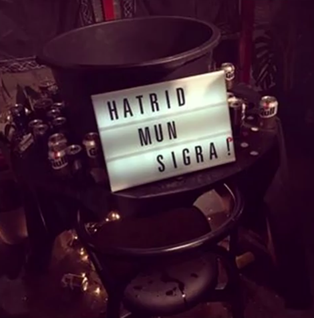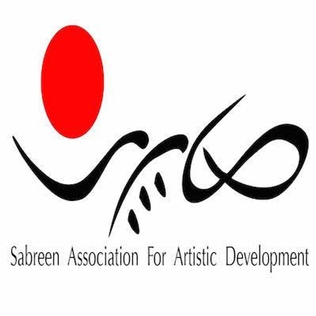Sveinn Rúnar Sigurðsson is an Icelandic songwriter, music producer, and medical doctor, best known for having composed two Eurovision Song Contest entries for Iceland, "Heaven" by Jónsi in 2004 and "Valentine Lost" by Eiríkur Hauksson in 2007. He has also composed music for Chinese action film Wings Over Everest.
Söngvakeppnin is an annual music competition organised by Icelandic public broadcaster Ríkisútvarpið (RÚV). It determines the country's representative for the Eurovision Song Contest.
Sigríður Beinteinsdóttir, better known as Sigga, is an Icelandic singer who competed for her native country in the Eurovision Song Contest three times. She was born on 24 July 1962 in Reykjavík.

Hera Björk Þórhallsdóttir is an Icelandic singer. She is known for representing Iceland in the Eurovision Song Contest 2010 with the song "Je ne sais quoi", where she finished 19th, and at the Viña del Mar International Song Festival 2013 with the song "Because You Can", where she won in the Best Song category.
Iceland participated in the Eurovision Song Contest 2013 with the song "Ég á líf" written by Örlygur Smári, Pétur Örn Guðmundsson. The song was performed by Eythor Ingi. The Icelandic entry for the 2013 contest in Malmö, Sweden was selected through the national final Söngvakeppnin 2013, organised by the Icelandic broadcaster Ríkisútvarpið (RÚV). The selection consisted of two semi-finals and a final, held on 25 January, 26 January and 2 February 2013, respectively. Six songs competed in each semi-final with the top three as selected by a public televote alongside a jury wildcard advancing to the final. In the final, the winner was selected over two rounds of voting: the first involved a 50/50 combination of jury voting and public televoting, which reduced the seven competing entries to two superfinalists and the second round selected the winner exclusively through public televoting. "Ég á líf" performed by Eythor Ingi emerged as the winner after gaining 67% of the public vote.

Iceland–Israel relations refers to the diplomatic relations between Iceland and Israel. Both nations are members of the Organisation for Economic Co-operation and Development and the World Trade Organization.
"Paper" is a song performed by Icelandic singer Svala. The song was released as a digital download on 20 March 2017 through Ríkisútvarpið. It represented Iceland in the Eurovision Song Contest 2017, and was written by Svala Björgvinsdóttir, Einar Egilsson, Lester Mendez, and Lily Elise. The song was originally released in its Icelandic version, "Ég veit það".
Iceland participated in the Eurovision Song Contest 2019 with the song "Hatrið mun sigra" written by Einar Hrafn Stefánsson, Klemens Nikulásson Hannigan and Matthías Tryggvi Haraldsson. The song was performed by the group Hatari. The Icelandic entry for the 2019 contest in Tel Aviv, Israel was selected through the national final Söngvakeppnin2019, organised by the Icelandic broadcaster Ríkisútvarpið (RÚV). The selection consisted of two semi-finals and a final, held on 9 February, 16 February and 2 March 2019, respectively. Five songs competed in each semi-final with the top two as selected by a public televote alongside a jury wildcard advancing to the final. In the final, the winner was selected over two rounds of voting: the first involved a 50/50 combination of jury voting and public televoting, which reduced the five competing entries to two superfinalists and the second round selected the winner exclusively through public televoting. "Hatrið mun sigra" performed by Hatari emerged as the winner after gaining 57.71% of the public vote.

Hatari are an Icelandic techno, industrial and punk rock band and performance art group from Reykjavík. Their public image incorporates elements of anti-capitalism and BDSM attire. The band currently consists of Klemens Hannigan, Einar Stefánsson and Davíð Katrínarson, the latter of whom replacing original member Matthías Haraldsson in 2023. They have released an album and an extended play, encompassing several singles. Hatari represented Iceland in the Eurovision Song Contest 2019 with their song "Hatrið mun sigra", finishing tenth.

"Hatrið mun sigra" is a song by Icelandic band Hatari. It won Söngvakeppnin 2019 and finished 10th at the Eurovision Song Contest 2019 in Tel Aviv, Israel. The song was the first Eurovision Song Contest entry to be performed in Icelandic since 2013. An extended version of the song is included in the band's debut studio album, Neyslutrans (2020).
Iceland planned to participate in the Eurovision Song Contest 2020, which was scheduled to be held in Rotterdam, Netherlands. Icelandic broadcaster Ríkisútvarpið (RÚV) held a televised selection process, Söngvakeppnin2020, to choose its entry for the contest. Following two semi-finals and a final, "Think About Things", written by Daði Freyr Pétursson and performed by Daði og Gagnamagnið, emerged as the winner of the event in February 2020. In mid-March 2020, due to the spread across Europe of the coronavirus disease 2019 (COVID-19), the European Broadcasting Union (EBU) announced the contest's cancellation, with Daði og Gagnamagnið subsequently announcing that they would represent Iceland at the 2021 contest.
Iceland participated in the Eurovision Song Contest 2021 in Rotterdam, Netherlands. Icelandic broadcaster Ríkisútvarpið (RÚV) chose Daði og Gagnamagnið to represent the nation with the song "10 Years", written by Daði Freyr Pétursson. Daði og Gagnamagnið were due to compete in the 2020 contest with "Think About Things" before the event's eventual cancellation, having won the 2020 edition of Iceland's national selection Söngvakeppnin. For the 2021 contest, RÚV decided to continue its association with Daði og Gagnamagnið, with the group's 2021 entry being selected internally and as such, no edition of Söngvakeppnin was organised for 2021.

Sabreen is a pioneer Palestinian musical group. Based in East Jerusalem, Sabreen was founded in 1980 by Said Murad. Their vision focused on the development of the Palestinian modern song, reflecting the humanitarian and cultural reality in general, and the suffering endured from the political situation in particular. Sabreen's members have changed over the years, the most notable members were Said Murad, Kamilya Jubran, Odeh Tourjman, Issa Freij, Yacoub Abu Arafeh, Issam Murad, Samer Mussallem, and Wissam Murad. Said Murad is the composer and arranger of the music, and Kamilya Jubran was the lead vocalist on four albums out of the five studio albums released.
The Eurovision Song Contest is an international song competition organised annually by the European Broadcasting Union (EBU) which features participants representing primarily European countries. One of the stated aims of the contest is that the event is of a non-political nature, and participating broadcasters and performers are precluded from promoting or referring to anything of a political, commercial or similar nature during the contest. However, several controversial moments have occurred since the event's creation in 1956, which have included political tensions between competing countries being reflected in the contest's performances and voting, disqualification of entries due to political references in song lyrics, and demonstrations against certain countries competing due to said country's politics and policies.
Iceland participated in the Eurovision Song Contest 2022 in Turin, Italy, with "Með hækkandi sól" performed by Systur. The Icelandic broadcaster Ríkisútvarpið (RÚV) organised the national final Söngvakeppnin2022 in order to select the Icelandic entry for the contest. The national final consisted of three shows: two semi-finals on 26 February and 5 March 2022 and a final on 12 March 2022.

"Með hækkandi sól" is a 2022 song by Icelandic folk group Systur. The song represented Iceland in the Eurovision Song Contest 2022 in Turin, Italy after winning Söngvakeppnin2022, the Icelandic national final. The song peaked at number-one in Iceland.

Systur, also known as Sigga, Beta & Elín and formerly Tripolia, are an Icelandic band consisting of sisters Sigríður, Elísabet and Elín Eyþórsdóttir. They represented Iceland in the Eurovision Song Contest 2022 in Turin, Italy with the song "Með hækkandi sól", after winning the Icelandic national selection Söngvakeppnin2022.
Iceland participated in the Eurovision Song Contest 2023 in Liverpool, United Kingdom, with "Power" performed by Diljá. The Icelandic broadcaster Ríkisútvarpið (RÚV) organised the national final Söngvakeppnin2023 in order to select the Icelandic entry for the contest. The national final consisted of three shows: two semi-finals on 18 and 25 February 2023 and a final on 4 March 2023.
Iceland participated in the Eurovision Song Contest 2024 in Malmö, Sweden, with "Scared of Heights" performed by Hera Björk. The Icelandic broadcaster Ríkisútvarpið (RÚV) organised the national final Söngvakeppnin2024 in order to select the Icelandic entry for the contest.

"Scared of Heights" is a song by Icelandic singer Hera Björk, written by Ferras Alqaisi, Ásdís María Viðarsdóttir, Jaro Omar and Michael Burek. It was released on 28 January 2024 by Alda Music. The song represented Iceland in the Eurovision Song Contest 2024.








